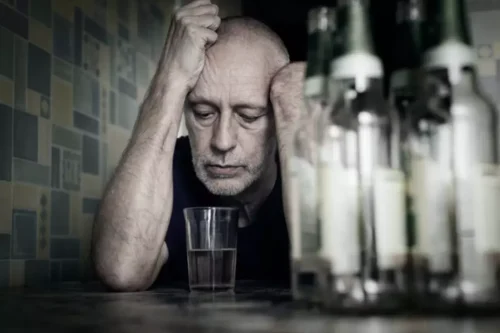
Receive free access to exclusive content, a personalized homepage based on your interests, and a weekly newsletter with the topics of your choice. The effect alcohol can have on breathing in older adults taking opioids is stark. In one small 2017 study, when participants were given 20 mg of oxycodone, the amount of air entering their lungs decreased by 28%. When participants also were given an infusion of alcohol, this decreased by another 19%. Receive free access to exclusive content, a personalized homepage based on your interests, and a weekly newsletter with topics of your choice.
Study Uncovers Impact of Binge Drinking, Longtime Alcohol Consumption on Biological Aging

The answer is not so straightforward, based on a recently published study by researchers at Yale School of Medicine. You might not be able to fully reverse some of the effects of alcohol-related aging naturally. There are some things though that you can do to improve your overall health and well-being to counterbalance many of the effects of alcohol-related aging. Such actions can even revitalize the skin and body and help prevent physical aging due to alcohol use. Heavy drinking can cause irritation to the blood vessels in your eyes.

Alcohol Consumption Changes the Aging Clock

Snyder and his colleagues have been investigating the biology of aging to better understand what changes occur and how, in order to better mitigate and treat these ailments. To this end, they have been tracking a group of 108 adults, who have been donating biological samples every few months over several years. “We’re not just changing gradually over time; there are some really dramatic changes,” geneticist Michael Snyder of Stanford University said in August when the study was published. Along with these, ask about various nonalcoholic brands of spirits, beers, and wines. Alcohol abuse in older people has become more common in the past few decades. Alcoholism is often overlooked or misdiagnosed in older people.
More Must-Reads from TIME
- You no longer need to disrupt your life in order to start drinking less.
- It can also age you prematurely, making you look, feel, and act older than you actually are.
According to the current USDA Dietary Guidelines for Americans, the recommendation for moderate drinking is a maximum of two drinks per day for men, one drink alcohol makes you age faster per day for women. Based on the age-related physiological changes in the way people respond to alcohol, some experts believe the criteria should be changed for older adults—perhaps limiting intake to no more than one drink per day after age 65. These interactive effects could cause medications to become less or more effective.
- AARP is a nonprofit, nonpartisan organization that empowers people to choose how they live as they age.
- As for what’s behind the changing physical response to alcohol, Andrades cites a couple of key factors, including decreased muscle mass (replaced by fat tissue) and reduced liver function.
- Alcohol can also lead to weight gain and other health-related issues.
Alcohol and Medication: A Potentially Deadly Cocktail
Staying hydrated may help limit a blood-alcohol surge, he says, but the physiology of aging will prevail. And the old trick of alternating drinks with something nonalcoholic can help you pace yourself, he adds. But that system may indicate you’re still planning on drinking too much in one session and risking harm to your liver. “Heavy alcohol drinking might change the aging clock before one develops medical disease. Drinking heavily and often can have a significant impact on your overall health.
- (A drink is one 12-ounce can or bottle of beer, one 5-ounce glass of wine, or one 1.5-ounce shot of an 80-proof or less liquor.) Talk with your doctor to find out what’s right for you.
- Alcohol consumption has previously been linked to the development of many diseases, including hypertension, cancer and liver disease, and previous work has explored its association with biological aging.
- The first thing you can do to reverse alcohol-aging is stop drinking.
- The shortening causes our DNA to become damaged, leading to the risk of developing illnesses like Alzheimer’s and heart disease, especially in our later years.
- Perhaps the biggest sign of aging that you can’t physically see is the effect that drinking has on your brain.
- Our brains normally start shrinking in middle age, but older people who drink too much show marked loss of volume in the frontal cortex, a 2018 study found.
- It’s a natural process called intrinsic aging, and it’s something you can’t control.
- Snyder and his colleagues noticed that there’s a very clear change in the abundance of many different kinds of molecules in the human body at two distinct stages.
- The idea of having a drink to relax before bedtime may not be a good one, especially as you get older.
- Not only will alcohol make conditions like hypertension and diabetes worse, but it also mixes poorly with the medications typically used to treat those conditions.
Of course, this amount may vary depending on your own health and body type. The good news is that, as both Topiwala and Hou point out, biological ageing can in theory be reversed. The bad news, however, is that in practice we don’t really know how to do it. Once again, the research found that cumulative alcohol exposure is a surefire way to increase your biological age.
Alcohol consumption and epigenetic age acceleration across human adulthood

At Grace Land Recovery, we know the challenges that come with addiction. That’s why we make it our goal to successfully treat every person that walks in our doors with a variety of traditional and alternative treatment methods. Typically your tolerance level to alcohol will go up the more you drink.
